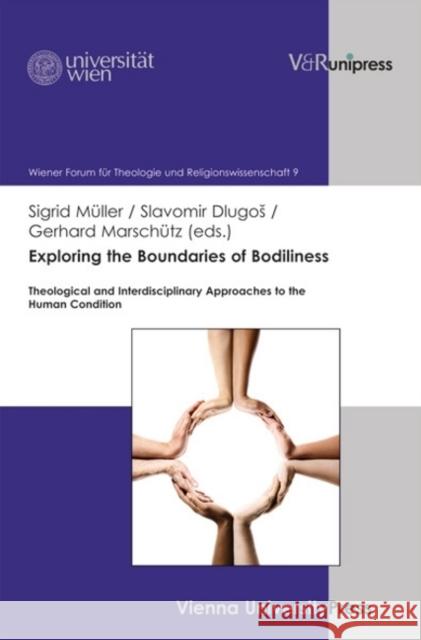Exploring the Boundaries of Bodiliness: Theological and Interdisciplinary Approaches to the Human Condition » książka
Exploring the Boundaries of Bodiliness: Theological and Interdisciplinary Approaches to the Human Condition
ISBN-13: 9783847101970 / Angielski / Twarda / 2013 / 314 str.
Exploring the Boundaries of Bodiliness: Theological and Interdisciplinary Approaches to the Human Condition
ISBN-13: 9783847101970 / Angielski / Twarda / 2013 / 314 str.
(netto: 308,64 VAT: 5%)
Najniższa cena z 30 dni: 309,58
ok. 10-14 dni roboczych
Bez gwarancji dostawy przed świętami
Darmowa dostawa!
English summary: Recent developments in technology have given rise to the impression that the boundaries imposed by our bodiliness can somehow be overcome. The increasing philosophical interest in bodiliness as an unavoidable human condition can be seen as a response to this far too comfortable impression. The essays in this volume address the topic of bodiliness from a theological point of view. They show that our perceptions of, and relationships with, one another cannot be divorced from our bodily condition, and that this existential reality affects significantly how we understand our relationship with God. The contributions also address how we can best deal with the fragility of our bodily condition, as well as the challenges that technological and medical procedures for altering the appearance and constitution of our bodies pose. Special attention is given to how liturgical experience not only offers us a means to respond to these challenges but also to deepen our understanding of Christian communities as ineluctably bodily. German description: Die technologischen Entwicklungen unserer Zeit erwecken den Eindruck, dass wir unseren Leib verbessern und seine Grenzen mit ihrer Hilfe uberwinden konnen. Das hohe philosophische Interesse an der leiblichen Verfasstheit des Menschen ist moglicherweise eine Gegenreaktion auf diese Entwicklung. Dieser Band bietet theologische Perspektiven zu diesem Thema. Die Beitrage vertreten ein integratives Verstandnis vom Menschen, zu dem Leiblichkeit als unabdingbare Charakteristik gehort. Sie zeigen, wie diese Leiblichkeit die Art und Weise bedingt, wie wir uns wahrnehmen und miteinander in Beziehung treten und wie sich diese Grundbedingung auch auf unsere Beziehung zu Gott auswirkt. Gegen eine einseitige Perspektive der Verbesserung des Korpers stellen die Autoren einen differenzierten Umgang mit dessen Verwundbarkeit. Die Beitrager stellen die Bedeutung der Leiblichkeit fur den Vollzug der Liturgie und fur ein zeitgemasses Verstandnis von christlicher Gemeinde und diakonischer Arbeit heraus.
Recent developments in technology have given rise to the impression that the boundaries imposed by our bodiliness can somehow be overcome. The increasing philosophical interest in bodiliness as an unavoidable human condition can be seen as a response to this far too comfortable impression. The essays in this volume address the topic of bodiliness from a theological point of view. They show that our perceptions of, and relationships with, one another cannot be divorced from our bodily condition, and that this existential reality affects significantly how we understand our relationship with God. The contributions also address how we can best deal with the fragility of our bodily condition, as well as the challenges that technological and medical procedures for altering the appearance and constitution of our bodies pose. Special attention is given to how liturgical experience not only offers us a means to respond to these challenges but also to deepen our understanding of Christian communities as ineluctably bodily.











